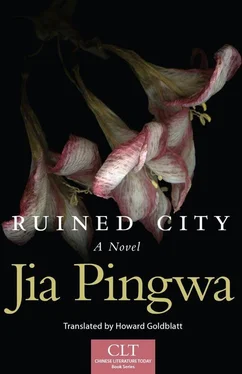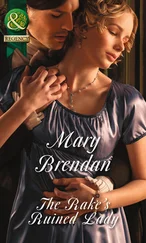“That is pure rubbish,” Zhuang said.
“What do you mean, rubbish?” The young man said. “That’s what’s it says here. Don’t you think great people can be great even in childhood?”
“Let me see that.” Zhuang took the magazine and saw that it was the latest issue of Xijing Magazine , with an article titled “Stories of Zhuang Zhidie,” authored by Zhou Min. Was this the one he had spoken of? A quick read told Zhuang that it was all gossip, embellished and exaggerated to make for a lively, amusing read. I ought to see what I’m like , he told himself. So he read on and learned that Zhuang Zhidie was both generous and stingy, that he could give away a goat without a second thought, then turn around and demand that the tethering rope be returned, saying that he had only wanted to give away the goat, not the rope. Zhuang was wise and he was foolish; he was sure that Li Qingzhao was referring to the events of her wedding night when she wrote: “A gusty wind and fine rain last night / The taste of wine lingers after a deep sleep / I asked the one rolling up the screen / Only to be told that the crabapple was the same / Do you know / Do you know / The green should be growing but the red wanes.” And yet he had trouble deciphering a train timetable. Zhuang could make you happy and he could embarrass you. He could tell you how to recognize a female fly by seeing where it lands; if it alights on a mirror, it is female, for even a fly wants to be pretty. When he is dragged over in a public place to have his photo taken, he can put on a miserable look and say he was a horse in his previous life, not a warhorse or a beast of burden, but a beribboned pony at a tourist site, where it is mounted for picture-taking. The sight could bring him to tears. As he read on, Zhuang came to the part about a romance from years before with a coworker at a magazine office; with many things in common, they were deeply in love, but ultimately parted ways owing to a strange combination of circumstances. Zhuang grimaced at the passage; the outlandish stories in the previous section were of no concern, but the romance should not have been mentioned so irreverently, since it involved another person. No name was given, but the outline of the story was clearly based on his relationship with Jing Xueyin. They had been very close, something he regretted now, but he hadn’t touched her, not even a handshake, though the flame of desire had burned for years. But what was written in the magazine seemed to imply that they had done it all. Now they were both married, she with children, so how would her husband feel when he read this? How would Niu Yueqing feel? Everything in the article seemed based on real events and yet was at odds with what had really happened. Where had Zhou Min gotten his material? What bothered Zhuang most was how Jing would react after reading the article. She would likely think that he had given Zhou private information to demonstrate his allure. Would she then suppose that he was using a romantic dalliance to enhance his popularity? What would she do if her husband asked about it? Beset by worries, Zhuang put down the magazine and rushed over to the editorial office of Xijing Magazine , his desire to see Tang Wan’er gone.
. . .
Zhuang had been an editor at Xijing Magazine twelve years earlier, when Jing Xueyin, a recent college graduate, was assigned to the Culture Department. A new desk, the fifth one, was placed across from his, overcrowding the editorial office, a former meeting room that had been repurposed. The head of the editorial office was Zhong Weixian, but Zhuang was the only one with true leadership qualities. Another senior editor, who had been hired at the same time as Zhong, was also a college graduate, and thus naturally would not take orders from him. The third person was Li Hongwen, a shrewd, resourceful, and articulate man who had been a great help to Zhong in his promotion to head of the editorial office. And yet Zhong had him pegged as a petty individual. Since it is always easier to deal with broadminded people than with petty ones, particularly those to whom one owes a debt of gratitude, Zhong made a point of conceding to Li whenever he could. The fourth person, a widow named Wei, was having an affair with the deputy head of the department, making her equally impossible for Zhong to lead. As for Jing, she called the deputy head “uncle” from the moment she arrived, since he had once worked for her father. As a result, Zhuang was the only editor whom Zhong could ask to do anything, so he was told to assist farmers during the summer harvest and to join the neighborhood disaster relief team after an earthquake. Zhuang had to fetch boiled water when he came to work in the morning and close up in the evening before he left. During his five years in the office, the high-water mark of his youth, he had cried bitter tears, cursing those people for their disdain and abuse; but after leaving, he came to see those years as critical, with his fondest memories revolving around Jing Xueyin. Thinking back, he viewed them as a bottomless sack of provisions that he carried with him during his passage through the world.
Now, twelve years later, the department head was still the department head, the magazine was still the magazine. The widow, on the other hand, had become the section chief in another office after marrying Deputy Head Yan. Jing had chosen administration over literary work and had been promoted to a mid-level leadership position. After considerable effort, Zhong Weixian, who had always been an old-fashioned man with limited prospects, finally became the new editor-in-chief, after triumphing over an editorial group that had run the magazine for three years and nearly driven it into financial collapse. Zhong never did trust Li Hongwen, though he found it impossible to do without him.
Zhuang arrived at the familiar old building and greeted acquaintances before heading to the editorial office. When he opened the door, the editors were all holding underpants. They did not have time to put them away before he walked in on them.
“Ai-ya!” Li cried out at the sight of Zhuang. “An early arrival is never as good as a timely one. Here, you can have these.”
“Why are you all holding skivvies?”
A stranger came up to shake his hand.
“It’s nice to meet you, Mr. Zhuang. I’m Wang Henian, a novelist. What do you think of our factory’s products?”
“After a reorganization at the magazine, part-time writers began bringing in ad revenue,” Li explained. “Henian is a good novelist. His factory is a small neighborhood concern, and since he can’t afford to advertise, he gives us samples. These are anti-STD underpants. They can cure an STD if you have it and help prevent one if you don’t.”
“These are perfect for you guys. I, on the other hand, would need a pair that increases my sexual prowess,” Zhuang replied, drawing laughter from everyone.
Zhong was laughing so hard his face shrank into a walnut. He took off his glasses to wipe away tears. “Come here, Zhidie,” he said. “I’ve saved up some good cigarettes for you.”
He opened his drawer and took out a box filled with cigarettes.
More than a decade earlier, when Zhuang had first taken up smoking, he had given Zhong a large box to collect cigarettes from part-time writers who came to Zhong with their manuscripts. Zhong did not smoke and had turned down the gifts until Zhuang stopped him, saying he would smoke the cigarettes for him.
“Zhong Weixian is old-fashioned,” said Gou Dahai, an editor who had hired on after Zhuang’s departure. “Do you think Zhuang Zhidie still wants those? Now that he’s here, I’ll take over.” He dumped the contents of the box into his drawer and gave up his chair to Zhuang.
Zhuang sat down, and after some small talk began discussing the revamped magazine, a topic that involved them all. Confidence ran high over the contents, the cover design, even the ads for the first issue. The article by Zhou Min, in particular, had been promoted in posters in front of the post office as a special enticement. The editorial office had even decided to print additional copies and increase Zhou’s fee.
Читать дальше


![Matthew Vincent - [you] Ruined It for Everyone!](/books/216429/matthew-vincent-you-ruined-it-for-everyone-thumb.webp)









